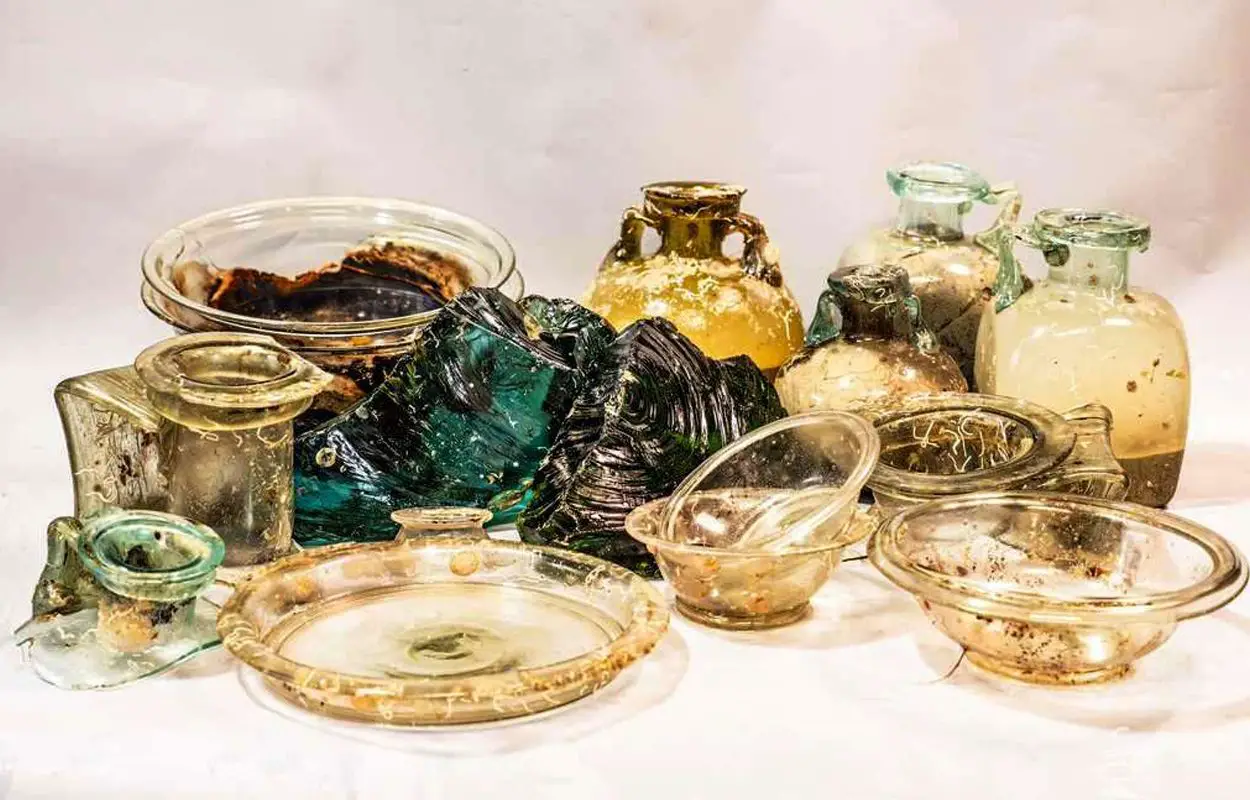Underwater archaeologists have recovered ornate glassware during excavations of the Capo Corso 2 shipwreck.
Capo Corso 2 was first discovered in 2012 at a depth of around 350 metres in the stretch of sea between Capo Corso and the island of Capraia.
Preliminary dating places the ship to around the end of the 1st and the early 2nd century AD, which sunk transporting a cargo almost exclusively of glass in both its raw state, and thousands of worked brown tableware.
An Italian-French mission first conducted a photogrammetric survey of the wreck to study changes to the site caused by sedimentation and human action. Based on the obtained data, the researchers then deployed a remotely operated vehicle (ROV) called Arthur.

Arthur is a new ROV prototype that can reach a depth of 2500 metres. It can shoot high-definition video, ventilate or vacuum the sediment, and recover artefacts in situ by using a specially mounted claw.
Various glass objects have been recovered using the ROV, including glass bottles, cups, and bowls, in addition to two bronze basins and several amphorae.
In an announcement by the National Superintendency for Underwater Cultural Heritage: “All archaeological materials will be transported to the laboratory of the National Superintendence in Taranto for scientific analyses, for the characterisation of biological degradation and for restoration.”
The research team hope that further study of the objects will reveal details about the chronology of the ship and the route it travelled on its last journey. An initial analysis of the cargo suggests that the ship likely came from a port in the Middle East, possibly from Lebanon or Syria.
Given the exceptional nature of the wreck and the results of this first survey campaign, the researchers of both countries hope to be able to start a broader multidisciplinary project in the coming years.”
National Superintendency for Underwater Cultural Heritage
Header Image Credit : ManuelAñò-ProdAqua





